“All of my writings address human desires and aspirations with a reverence for facts and principles.”
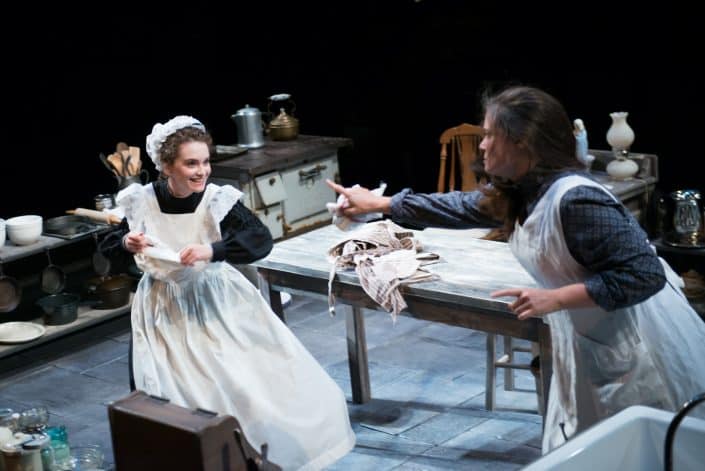
A Working Kitchen in THE SECOND GIRL at CATF
There is so little movement, so few definitive changes in the lives of the characters over the one day the action covers; what was the secret sauce that gave the play its wide appeal? I credit two things: the banter, most of it delivered with an Irish lilt, and the cooking.
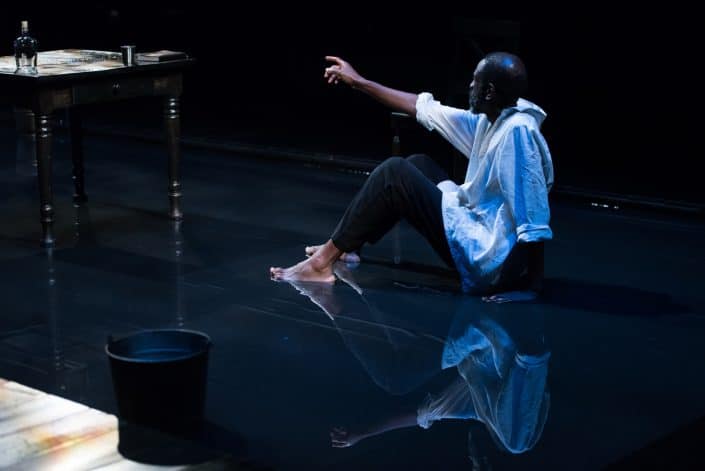
Sloppy pen/man/ship at CATF
We can understand that Charles, the ship-charterer, is a black man who believes himself superior to all the black people who surround him. Playwright Christina Anderson’s remarks in the program suggest Charles is an exemplar of America’s notion of exceptionalism. Of course it is all a charade. Charles is an alcoholic and an emotionally abusive father, his hidden project is morally objectionable despite his outward religiosity, and he either commits murder in the course of the play or abets someone else’s crime. The spectacle of a man with these specific hypocrisies being deprived of control over his circumstances is accessible as a dramatic action and as a consideration of the underlying racial and social issues. And it works dramatically.

Boomers Considering What They Were and Are: 20th CENTURY BLUES at CATF
The point is not merely what they and we have been through, nor merely that plus what we’ve all learned by going through it in a particular time and place. Perhaps most important, 20th Century Blues (notwithstanding its title) addresses, from the inside and the outside, the universal experience of aging, an experience common to all times and places.
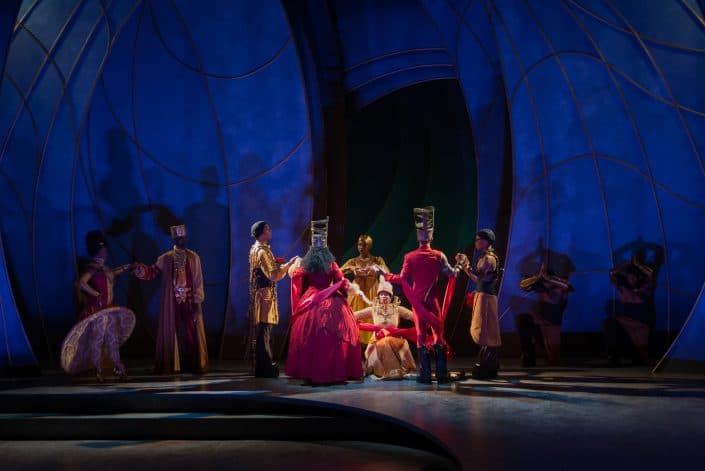
Lush, Untranslated, and Disorienting: THE WEDDING GIFT at CATF
Like the astronaut in Planet of the Apes, Doug finds himself transported to a world which bears great similarities to ours, but which has a fundamentally altered civilization. In this world, blacks comprise not merely the dominant race, but indeed apparently the exclusive one, speaking a language which bears no resemblance to ours. This is awkward for white-skinned, English-speaking Doug. As quickly becomes apparent, Doug’s difference in language and looks from the dominant populace results in his being enslaved and/or treated as a pet (take your pick), and made a wedding gift. That’s where the audience first encounters him, after we witness the ceremony. It is no accident that the ceremony comes first; it gives us a chance to take in the resplendence of the scene. The costumes, the makeup, the music and sound effects, and especially the scenery are magnificent. This is a highly developed society, if one that is in certain ways barbaric, and its usages are of the utmost importance.

Love Story Heartthrobs in LOVE LETTERS Play
If you love Love Letters, if you want to Oliver and Jennifer again (sort of), or you just want to see two old professionals having gentle fun together, this show’s for you.

Thrilling NEVERWHERE: A Signature Production for an Ambitious New Company
I know a gripping mythos when I see one. This is the real deal. If you have the kind of imagination that responds to graphic novels and Game of Thrones, this one is for you. You will find yourself transported for three hours into a world completely different from our own, but it is nevertheless detailed, dramatically coherent, and totally absorbing.
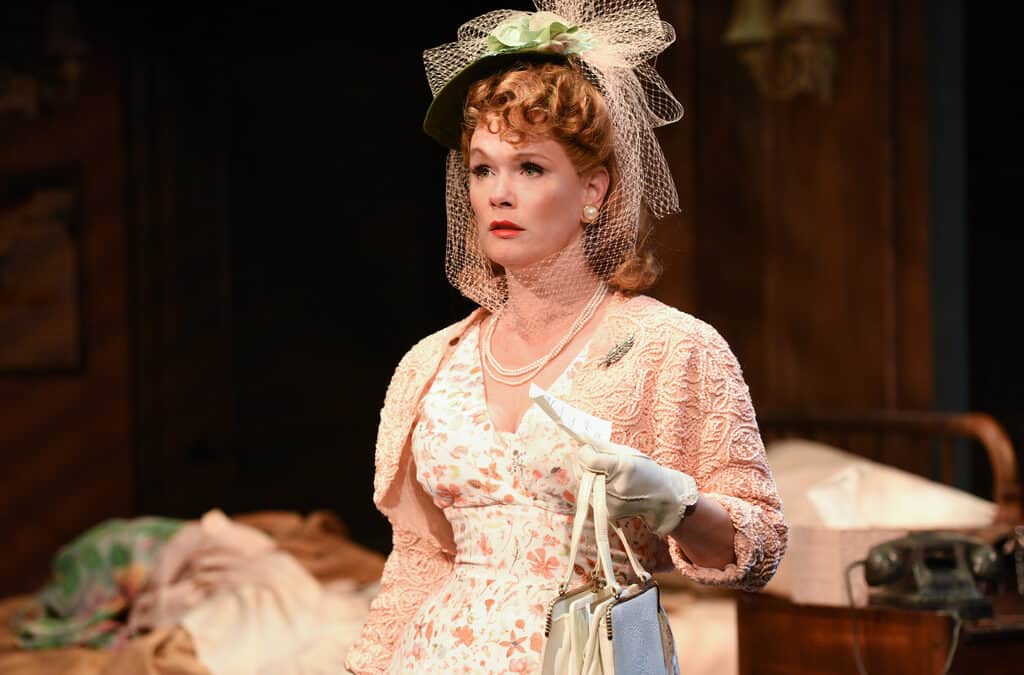
Fever Dream: STREETCAR at Everyman
Fever Dream: Streetcar at Everyman Posted on BroadwayWorld.com April 18, 2016 Tennessee Williams' A Streetcar Named Desire is atmospheric, outsized, swampy, passionate, quirky, in short Southern Gothic. In most respects, Streetcar is therefore the polar opposite of...
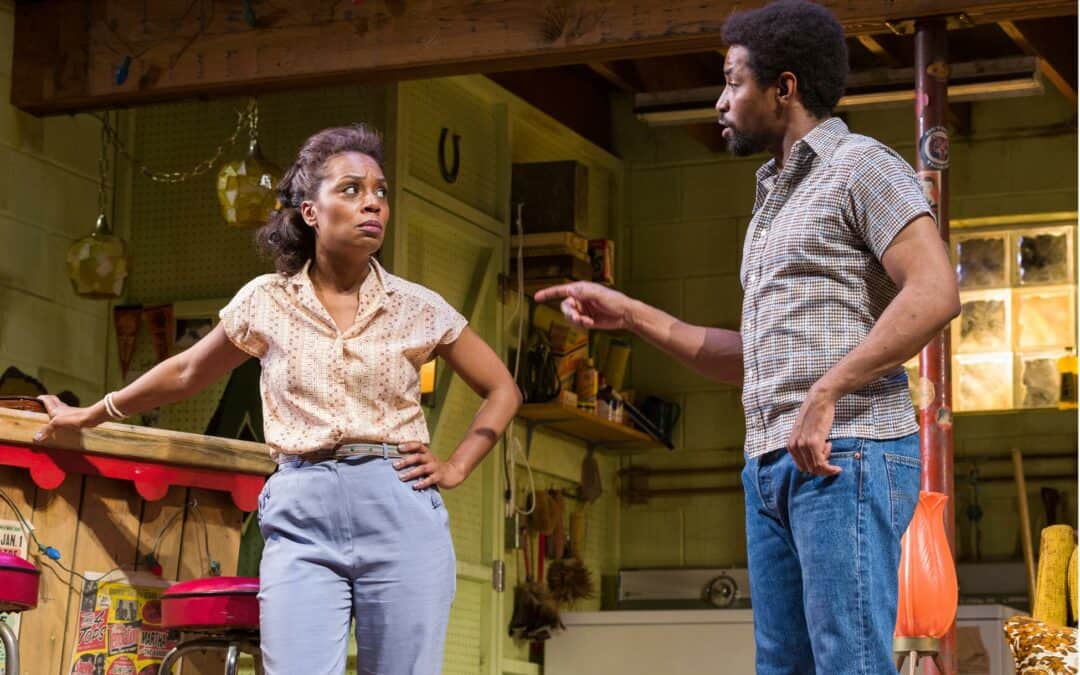
DETROIT ’67 a Lot Like Baltimore ’15
Morisseau’s explanation of the Detroit riots makes a lot of sense, and resonates with my understanding of what happened last year in Baltimore. Morisseau’s thesis is that the black citizens of Detroit were not crazy, just reacting to an ongoing culture of police abuse, and that abusive police and military responses were to blame for most of what went wrong once the spark of protest had been struck by the raid of an unlicensed after-hours drinking club known as a ‘blind pig.’
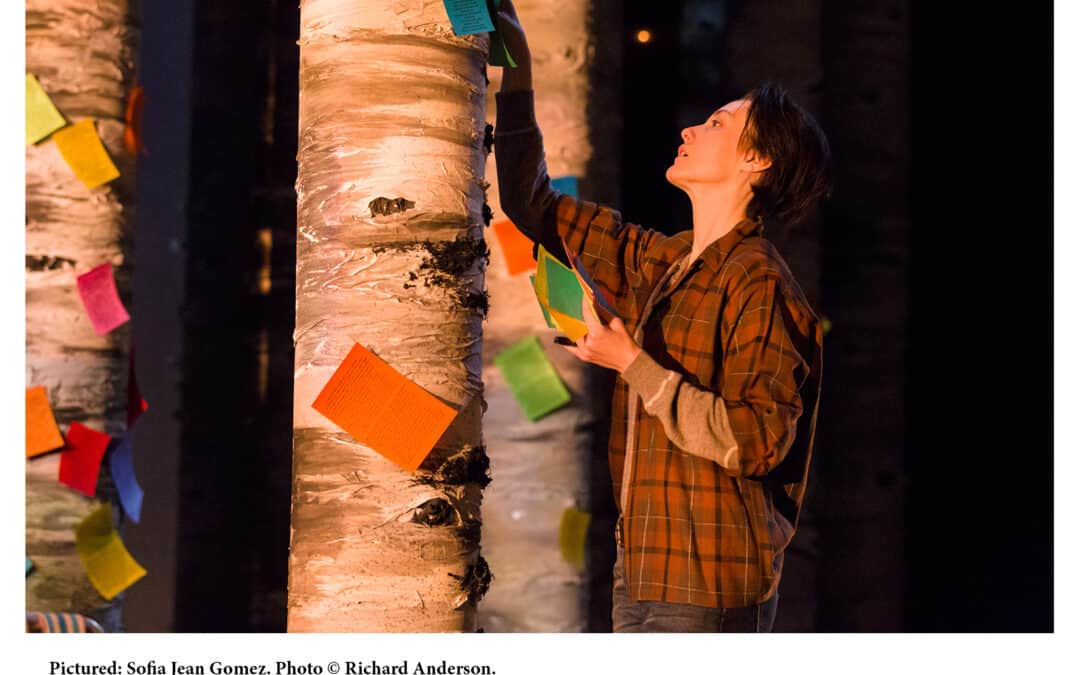
AS YOU Don’t LIKE IT: Misdirected Direction at Center Stage
There is no perfect way to realize Shakespeare’s vision, but employing an all-female cast is apt to be among the less successful ways. In the alternative, you can say the hell with realizing Shakespeare’s vision, and simply have fun with your own. And that, I think, is the approach that director Wendy C. Goldberg has chosen to pursue at Center Stage
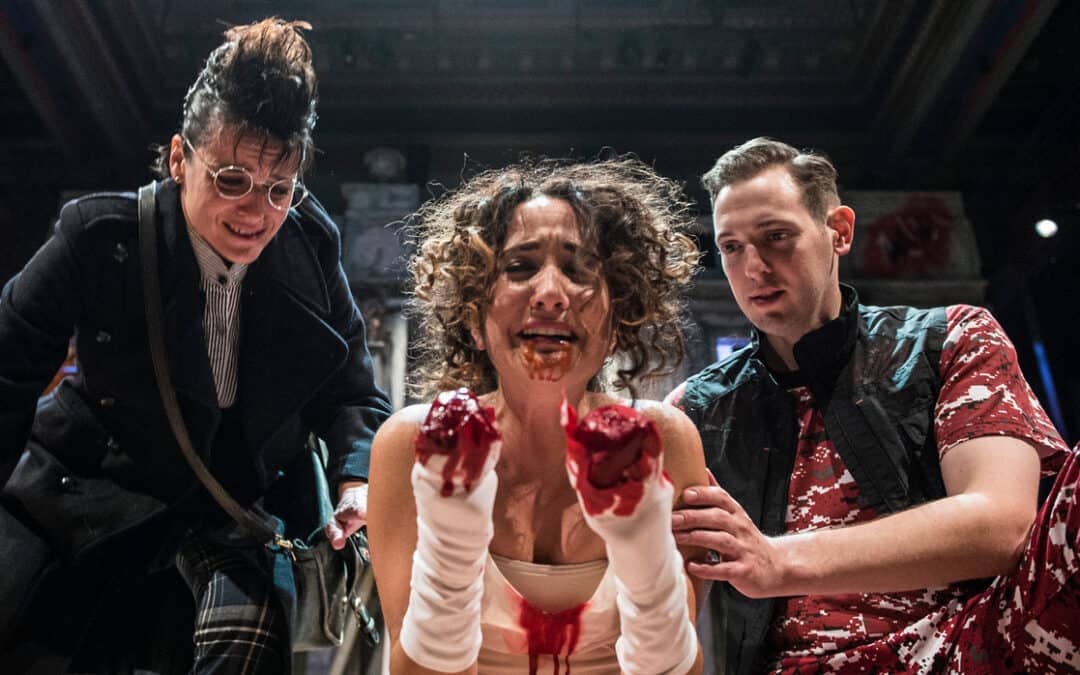
A Horribly Good Time with TITUS ANDRONICUS at CSC — But Don’t Call It Shakespeare
If you view this production as an entertainment for those whose taste runs to Mad Max, to Rocky Horror, and to the movies of Quentin Tarantino (none of which I’m knocking, but let’s not call them Shakespeare), then this may be a lark for you.

 I lived in London and Vienna before coming to the United States, and grew up mainly in Ann Arbor. I was writing plays and stories as early as grade school. My undergraduate years at the University of Pennsylvania, where I first reviewed theater, for the college paper, were succeeded by graduate study at the Johns Hopkins University, where I earned a doctorate in English Literature.
I lived in London and Vienna before coming to the United States, and grew up mainly in Ann Arbor. I was writing plays and stories as early as grade school. My undergraduate years at the University of Pennsylvania, where I first reviewed theater, for the college paper, were succeeded by graduate study at the Johns Hopkins University, where I earned a doctorate in English Literature.